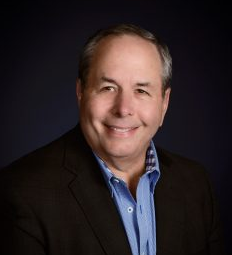
My stepfather, Andy, was a naturopathic physician. He was really old school. His services were not covered by Medicare or insurance. Many of his patients paid him in “in kind” or in monthly installments. He was also old school in that he actually did home visits.
One story was particularly interesting to me. He had a patient that lived out in the country. The patient had really bad back problems. He would get down in his back, so bad that he could not make it to town. Andy would drive out to his home, sometimes in the middle of the night, to help relieve his pain either by an “adjustment” or some type of homeopathic medication.
Andy quickly discovered that part of his patient’s problem was that he had a very bad bed. The bed was making the back problem worse. The bed was old, it bowed, and provided virtually no support for the gentleman. Andy continued to urge him to get a new bed, but to no avail. Instead, he chose to pay Andy to come out to see him, to fix his back, and to live to another day when it would start hurting again and he would recall Andy. The gentleman proclaimed he could not afford to buy a new bed.
I specialize in life care planning. Life care planning involves working with families that are facing aging or chronic health issues. Our goal is to help our clients stay at home for as long as possible. We help them find services to make that happen. If our clients have to transition to some residential setting, we want to be sure that they find the right place, that they have resources to pay for it, that they get good care, and that someone is always advocating for them.
My mentor, and indeed the inventor of this philosophical approach to elder care, is Tim Takacs. I have learned a lot based on Tim’s model of providing good care for people. When I first heard Tim speak about this model of caring for people, I remember getting goose bumps. It was exactly what I was looking for.
Part of the hurdle that we run into is trying to get people to take care of themselves now. One of the mantras from Tim Takacs is “spend your money now to take care of yourself now.” It is really a profound statement. By taking care of yourself and spending money now, you live a much more healthy life. You live in better accommodations. You avoid, reduce or eliminate some of the aging issues. You become less of a burden on yourself. In the long run, you will even save your resources by eliminating or reducing your time in long term care.
This is contrary to a lot of the upbringings of many of my clients. They grew up with the mentality to save for a rainy day; put all of the money into the farm; provide for later generations. It was even, put away money through insurance in case something bad happened.
It is really important that we take care of ourselves now. Sometimes that means investing in something that pays back to needed dividends: Take care of yourself. Buy the new bed. Go to the doctor. Get some type of plan in place. Access and allow assistance that keeps you out of the nursing home.
Through Tim’s model of life care planning, it has been my joy to work with families in helping them take care of themselves now, so that they can stay as independent as possible.
Let me go back to Andy’s patient. I do not remember exactly what happened, but eventually the gentleman ended up in a nursing home due to back related issues. I do not recall if he broke a hip or what, but I know at some point he was unable to stay at home any longer. Andy was disappointed because he really felt like if he would have just taken care of himself, he could have stayed at home much longer.
The irony is that after the gentleman died, we found out that he was worth over a million dollars. For whatever reason, he would not shell out just a little bit of money to get a new bed and take care of himself. As a result, his time in the nursing home came earlier and was longer than necessary.
Do not forget, now is the time to spend money on yourself to take care of yourself now.
Randy Clinkscales of Clinkscales Elder Law Practice, PA, Hays, Kansas, is an elder care attorney, practicing in western Kansas. To contact him, please send an email to [email protected]. Disclaimer: The information in the column is for general information purposes and does not constitute legal advice. Each case is different and outcomes depend on the fact of each case and the then applicable law. For specific questions, you should contact a qualified attorney.
